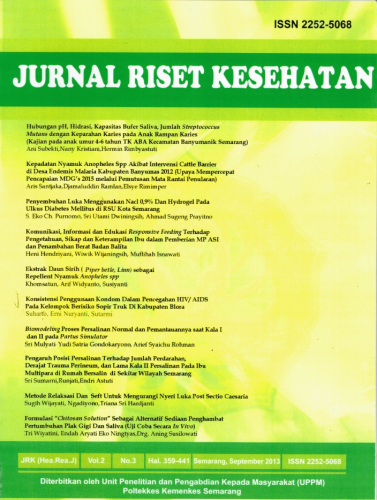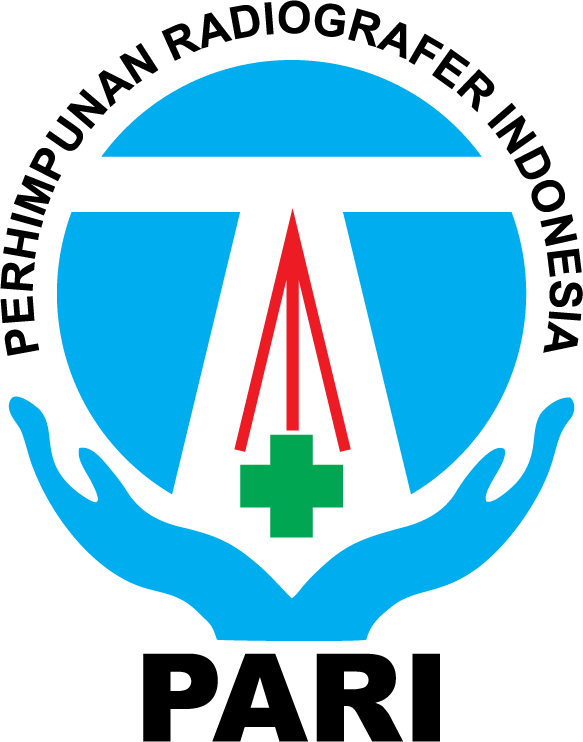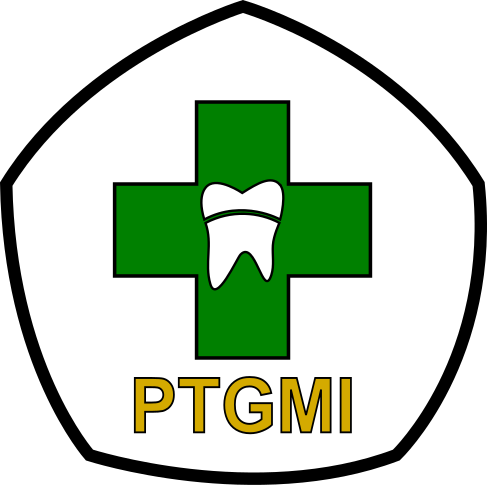DECREASED PAIN SCALE BASED ON CRITICAL PAIN OBSERVATION TOOL (CPOT) AND BEHAVIORAL PAIN SCALE NON-INTUBATED (BPS-NI) IN PATIENTS WITH REDUCED CONSCIOUSNESS BY CLASSICAL MUSIC INTERVENTION IN UNS HOSPITAL
Abstract
Patient with reduced consciousness needs attention to their comfort as well as pain during treatment. Listening to classical music caused relaxation and pain reduction. This study aimed to determine the effect of classical music on the CPOT score, BPS-NI, and cortisol levels in patients with reduced consciousness. The research was conducted by using a pretest-posttest control group design. 18 patients were divided into the control group (C) and the classical music group (M). Classical music was played for 3 days respectively that consisted of 3 sessions per day. Furthermore, each patient was tested for cortisol levels on the third day. Comparative test of mean difference between pre-intervention and post-intervention obtained significant results in CPOT (p= 0.000) and BPS-NI (p= 0.001) measurements in all groups. Tukey's post-hoc test obtained significant results in which the M group had a lower mean score. The mean of cortisol level was higher in M group (14.7 μg/dL) compared to the C group (12.96 μg/dL), although not significant statistically (p= 0.67). Listening to classical music for patients with reduced consciousness decreased the pain scale. This was supported by the average of cortisol levels that were higher in the M group, considering that cortisol was a hormone that prevents pain.
Keywords
Full Text:
PDFReferences
Baehr, M., Frotscher, M. and Duus, P., 2012. Duus' topical diagnosis in neurology: anatomy, physiology, signs, symptoms. Thieme.
Benarroch, E.E., 2012. Endogenous opioid systems: current concepts and clinical correlations. Neurology, 79(8), pp.807-814.
Garza-Villarreal, E.A., Wilson, A.D., Vase, L., Brattico, E., Barrios, F.A., Jensen, T.S.T., Romero-Romo, J.I. and Vuust, P., 2014. Music reduces pain and increases functional mobility in fibromyalgia. Front Psychol, 5, p.90.
Georgiou, E., Hadjibalassi, M., Lambrinou, E., Andreou, P. and Papathanassoglou, E.D., 2015. The impact of pain assessment on critically ill patients’ outcomes: a systematic review. Biomed Res Int, 2015.
Ghiasi, A. and Keramat, A., 2018. The effect of listening to holy quran recitation on anxiety: A systematic review. Iran J Nurs Midwifery Res, 23(6), p.411.
González-Díaz, S.N., Arias-Cruz, A., Elizondo-Villarreal, B. and Monge-Ortega, O.P., 2017. Psychoneuroimmunoendocrinology: clinical implications. World Allergy Organ J, 10(1), p.19.
Gorji, M.A.H., Araghiyansc, F., Jafari, H., Gorgi, A.M.H. and Yazdani, J., 2014. Effect of auditory stimulation on traumatic coma duration in intensive care unit of Medical Sciences University of Mazandarn, Iran. Saudi J Anaesth, 8(1), p.69.
Hanafi, M., Muhammad, F. and Wulandari, D., 2019. The Effect of Quran Recitation to Pain and Comfort Feeling on Patients with Reduced Consciousness in UNS Hospital. KnE Life Sci, pp.155-162.
Heiderscheit, A., Breckenridge, S.J., Chlan, L.L. and Savik, K., 2014. Music preferences of mechanically ventilated patients participating in a randomized controlled trial. Music Med, 6(2), p.29.
Lee, J.H., 2016. The effects of music on pain: a meta-analysis. J Music Ther, 53(4), pp.430-477.
Mirghafourvand, M., Shafaie, F.S., Mohammad-Alizadeh-Charandabi, S. and Jabbari, B., 2016. Effect of vocalization of the Holy Quran with and without translation on pregnancy outcomes: a randomized clinical trial. Iran Red Crescent Med J, 18(9).
Nwebube, C., Glover, V. and Stewart, L., 2017. Prenatal listening to songs composed for pregnancy and symptoms of anxiety and depression: a pilot study. BMC Complement Altern Med, 17(1), p.256.
Tortora, G.J. and Derrickson, B., 2013. Essentials of anatomy and physiology. Wiley.
Trappe, H.J., 2012. Role of music in intensive care medicine. Int J Crit Illn Inj Sci, 2(1), p.27.
Yadak, M., Ansari, K.A., Qutub, H., Al-Otaibi, H., Al-Omar, O., Al-Onizi, N. and Farooqi, F.A., 2019. The effect of listening to holy Quran recitation on weaning patients receiving mechanical ventilation in the intensive care unit: A Pilot Study. J Relig Health, 58(1), pp.64-73.
DOI: https://doi.org/10.31983/jrk.v8i2.5119
Article Metrics
Refbacks
- There are currently no refbacks.
Copyright (c) 2019 Jurnal Riset Kesehatan




















































